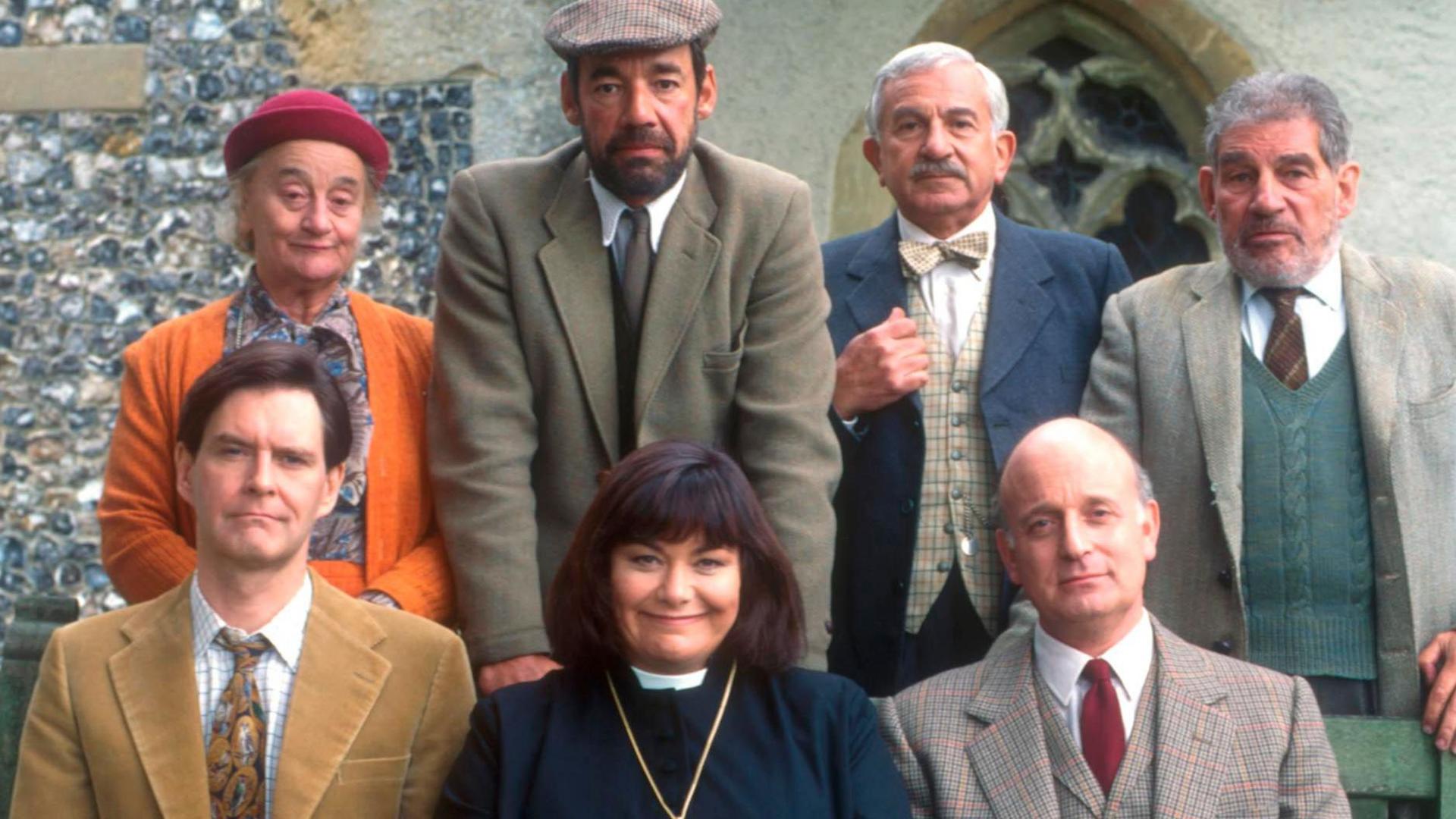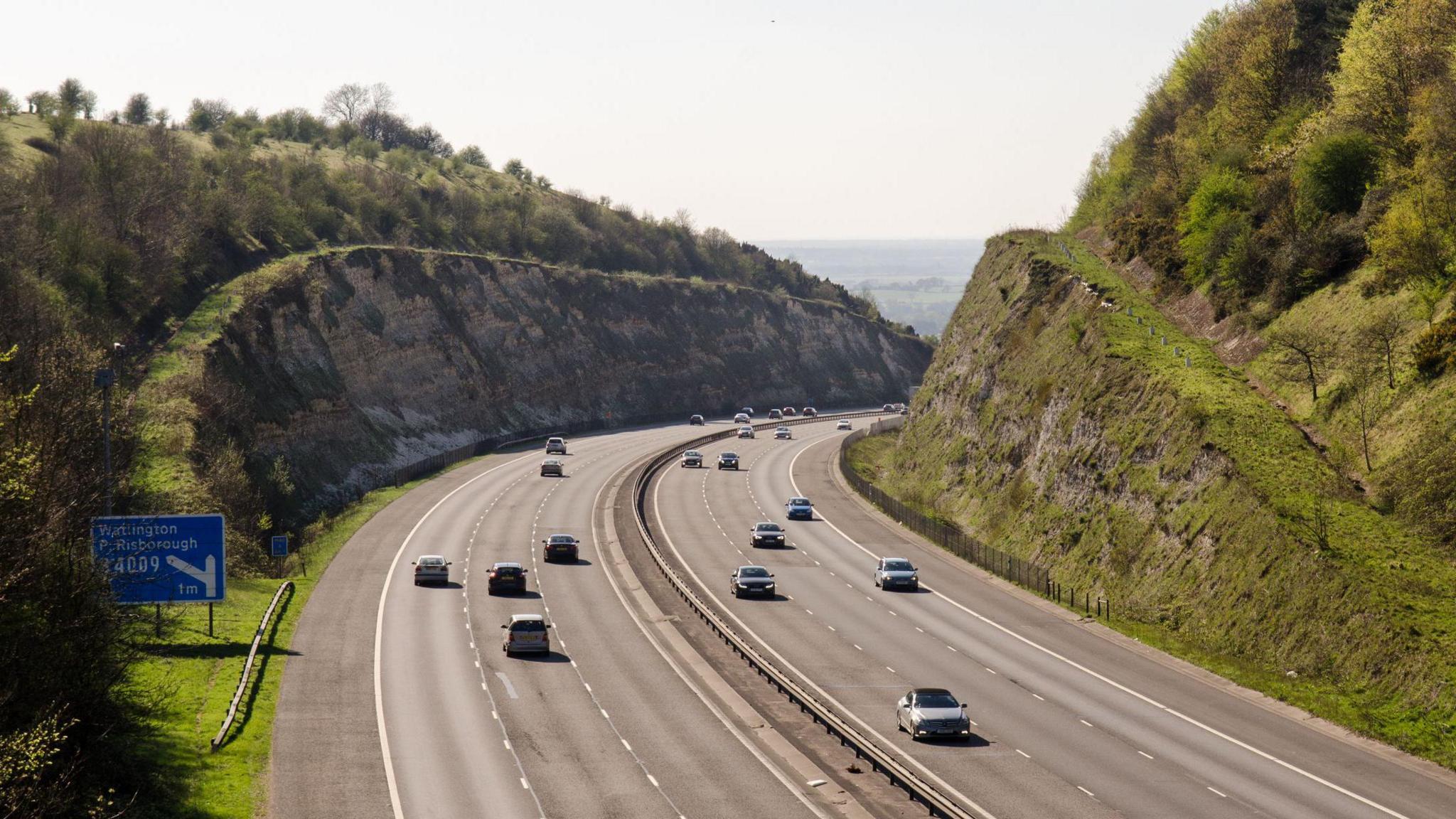Solar plan would 'wreck' Vicar of Dibley view

The Vicar of Dibley, starring Dawn French, was set in the fictional Oxfordshire village of Dibley
- Published
Plans to build a solar farm on countryside featured in the opening credits of BBC sitcom The Vicar of Dibley would "wreck" the view, opponents have said.
Developer Solar2 wants to build an 80 hectare (200 acre) solar farm on land near the Stokenchurch Gap - where the M40 scythes through the Chilterns.
The company said the 0.3 sq mile (0.8 sq km) development - near the Oxfordshire villages of Lewknor and Postcombe - would generate enough energy to power 16,500 homes.
But those opposed to the proposals have said the panels would be an "interruption to the landscape".
Robert Massie, from Postcombe, said: "It was chosen by Richard Curtis, who wrote the vicar of Dibley, specifically as the opening titles for the Vicar of Dibley because it was a quintessentially English view."
He continued: "If you're going to chose a place to plonk a massive industrial solar farm, for goodness sake, why put it there?"

The proposed solar farm site is near the Stokenchurch Gap
Mr Massie said the solar farm would "just wreck [the landscape] forever".
If the plans were approved, he said the "massive, whacking-great big" solar panels would "just hideously spoil the view".
The proposed development lies within the protected Chilterns National Landscape and is one mile (1.6km) away from the Aston Rowant Nature Reserve.
Matt Thomson, from Chilterns National Landscape, said connection with nature was "so important for people's wellbeing" but would be "disrupted by the insertion of an industrial feature", adding the panels would be an "interruption to the landscape".
Solar2 declined a BBC request to comment but the government said solar energy was "central to our mission to become a clean energy superpower".
"All projects are subject to rigorous planning processes, and the views of the local community must be taken into account," a Department for Energy Security and Net Zero spokesperson added.
Get in touch
Do you have a story BBC Oxfordshire should cover?
You can follow BBC Oxfordshire on Facebook, external, X (Twitter), external, or Instagram, external.